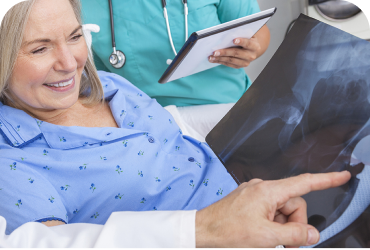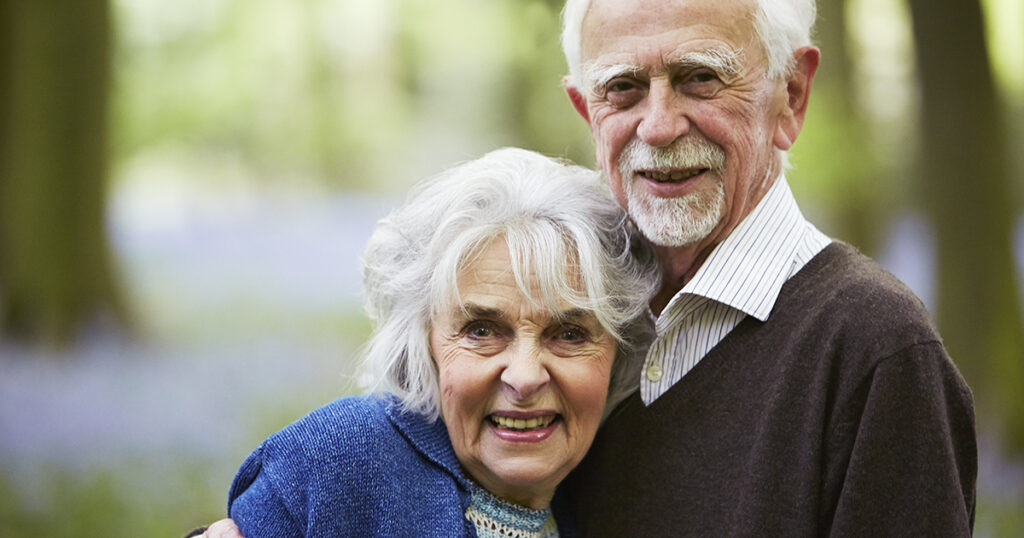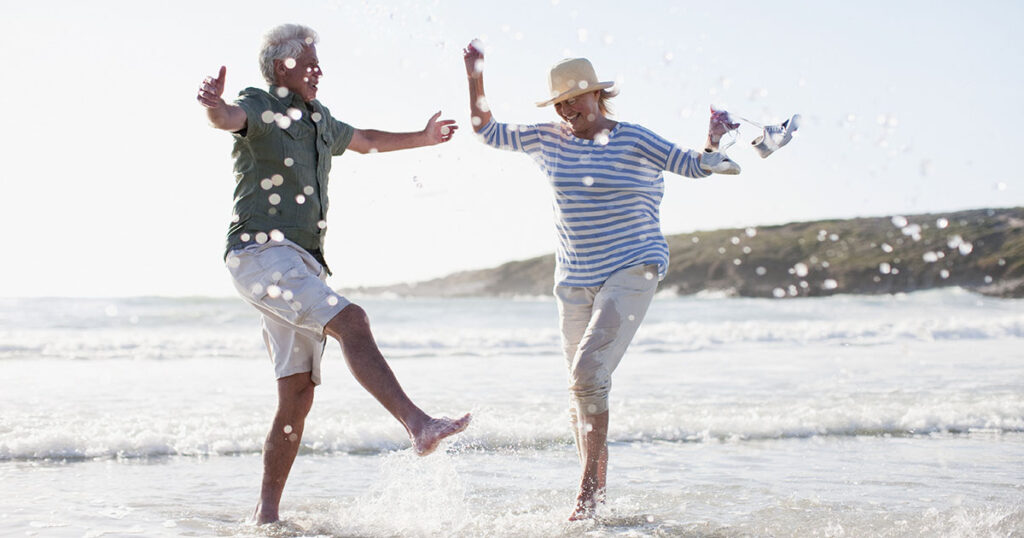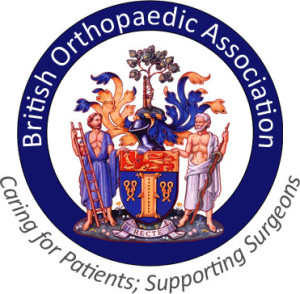During your initial consultation, Mr Nirav Shah will carry out a comprehensive assessment of your symptoms, including scans and a physical examination.
We usually take X-rays at your first appointment. If you need a CT or MRI scan, Mr Shah will arrange this for a later date, along with a follow-up appointment.
Scans are quick and painless and help to diagnose a wide range of orthopaedic conditions, including arthritis, fractures, osteoporosis and bone cancer.
X-rays
X-rays help us to see what’s happening inside your body, providing Mr Shah with a clear view of your bones, muscles, tendons, nerves and cartilage.
The different parts of your body absorb X-rays at different rates. So, denser body parts, such as your bones, show up white on an X-ray. While softer body parts, for example, your lungs show up as darker areas.
Your X-ray(s) will be carried out by our friendly team of radiographers at Goring Hall Hospital. The whole process should take 15–30 minutes.
You won’t need to do anything to prepare for your X-ray, but we recommend wearing loose, comfortable clothes to your appointment. You may need to remove any jewellery.
During your X-ray, you’ll be gently positioned by the radiographer to ensure the best view of the area we’re assessing. They’ll carefully place the X-ray machine before leaving the room to take your scan.
You’ll need to stay very still, so the image doesn’t blur. You may hear some clicking or buzzing sounds, but you won’t feel anything. Within minutes, your X-rays will be sent to Mr Shah to review.
Are X-rays safe?
During your X-ray, you’ll be exposed to a low level of radiation for a fraction of second. The risk this presents is small, and usually greatly outweighed by the benefits of a diagnosis and treatment.
A hip X-ray typically provides the same level of exposure as seven weeks of natural background radiation. While a knee X-ray delivers the equivalent of fewer than two days of exposure.
X-rayshttps://www.gov.uk/government/publications/medical-radiation-patient-doses/patient-dose-information-guidance aren’t usually recommended during pregnancy unless it’s an emergency.
Before you have an X-ray or any type of scan taken, we’ll assess you to make sure you’re suitable and inform you of the potential risks.
CT scans
Computed Tomography (CT) scans are a type of X-ray that provides us with a 3D picture of your body. They’re suitable for scanning larger areas such as the pelvis. They offer more detail than an X-ray, and they can be especially useful for diagnosing soft tissue injuries.
To prepare for your CT scan, you may need to avoid food and drink for a few hours beforehand. You might need to wear a gown during your scan. Otherwise, we recommend loose, comfortable clothing. You’ll need to remove any jewellery.
During your CT scan, the radiographer will ask you to lie on a comfortable bed. You’ll then pass through the CT scanner, which will rotate around the area that we’re examining. The scanner is open, so you shouldn’t feel claustrophobic, but please let your radiographer know if you’re feeling anxious.
Your radiographer will take your scan from a separate room, but you’ll be able to speak to them through an intercom. You’ll need to lie still during your scan. At specific points, your radiographer may ask you to hold your breath or breathe in or out.
Your scans, along with a report from a radiologist, will be sent to Mr Shah within the next few days. Mr Shah will share the results with you at your follow-up appointment.
Are CT scans safe?
CT scans typically expose you to more radiation than an X-ray because we are scanning a larger area. A CT scan of your pelvis, for example, provides the same level of exposure as 4.5 years of natural background radiation.
Mr Shah will only refer you for a CT scan if the potential benefits outweigh the risk.
Like X-rays, CT scans aren’t recommended during pregnancy.
MRI scans
Magnetic Resonance Imaging (MRI) scans use a powerful magnetic field and radio waves to generate 2D images of your body.
MRIs provide more detail than X-rays and CT scans, and they’re particularly useful for examining joints and soft tissues. Mr Shah will be able to see inside your ligaments and tendons, including lesions as small as 2mm.
You’ll be able to eat and drink as usual before your scan, which will be carried out by a radiographer. Again, we recommend wearing loose, comfortable clothes, but you may need to change into a gown for your scan.
During your MRI, the radiographer will ask you to lie on a bed, which will move through the scanner. It’s important to remain still during your scan. The scanner can be quite noisy, but you won’t feel anything. You’ll be able to hear and talk to your radiographer at all times.
Some patients can feel claustrophobic during an MRI scan. Goring Hall Hospital has a wide bore MRI scanner, which provides more space than traditional scanners. We have soothing lights and music to help you relax.
Your images will be reviewed by a radiologist, who will send a report to Mr Shah. You’ll find out the results of your scan at your follow-up appointment with Mr Shah.
Are MRI scans safe?
MRI scans are one of the safest medical procedures available. There is no exposure to radiation, and no evidence to suggest they pose a risk to your health.
If you already have a hip or knee prosthesis, you may not be suitable for an MRI. They’re also not recommended during pregnancy.
Paying for your scans
If you have health insurance, most insurers cover scans, but please check your policy. If you are paying for your treatment privately, we’ll provide you with a quote for your scans. This will include the hospital’s charges, Mr Shah’s fee and the radiologist’s fee (if required).
If you’ve had X-rays, CT or MRI scans taken recently, please let us know before your appointment. We can request digital copies to avoid you needing further scans.
To arrange a consultation with Mr Shah, or if you have any questions about scans, please contact Mr Shah’s secretary on 01903 707373. Alternatively, fill out our contact form, and we’ll get back to you as soon as possible.






